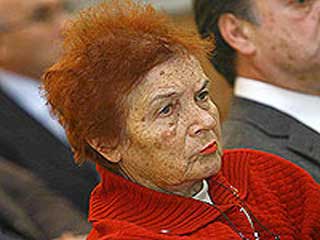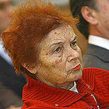
Ergenekon Investigation Extends to Academics and NGOs
Publication: Eurasia Daily Monitor Volume: 6 Issue: 71
By:

Turkish prosecutors investigating the Ergenekon criminal network have launched a new wave of arrests including academics, leaders of NGO’s, and columnists allegedly part of the Ergenekon criminal network, which aimed to topple the elected government in cooperation with the military. In the latest wave of 43 high profile arrests, including three university presidents and eight professors were among those arrested (Taraf, April 14). Thus far, twelve waves of arrests targeting close to 200 public figures has occurred during the trail process. The high ratio of detentions is considered as an indication of how the court will rule at the end of the trail process, since in the Turkish legal system the court detains suspects based on how convincing it considers the evidence presented as well as the risk of suspects fleeing the country or obstructing justice.
The latest arrests have re-awakened the debate on whether the AKP government uses the Ergenekon investigation as a political tool against its opponents. The primary reason for the re-emergence of the debate is due to a seven hour long police search at the home of Professor Turkan Saylan, a 74 year old cancer patient, the founder and president of the Association for Support of Progressive Life (CYDD). Saylan is known as an outspoken AKP critic but has publicly stated that she does not want a military coup (Radikal, April 14). The other "evidence" for those who argue that the operation aims to suppress the opposition is the political identity of the arrested professors, publicly opposed to the AKP’s attempt to lift the ban on wearing the headscarf at universities (Hurriyet, April 14).
Professor Saylan accused the United States of involvement in her arrest "I relate this operation with my stance against the American plan to use Turkish territory before invading Iraq in 2003" (Radikal, April 14). It is one of the common tendencies for Ergenekon suspects to blame the U.S. for their arrest, since they have become well known for their hostile position on American foreign policy (EDM, November 13, December 2, 2008).
Political divisions among Turkish newspapers including the neo-nationalist press, tend to present this recent arrest as an attack on those who advocate a secular and progressive lifestyle (Cumhuriyet, April 14). However, more liberal newspapers characterize it as an investigation into the academic wing of the Ergenekon network (Taraf, April 14). Given that military coups in Turkey’s history were always triggered by unrest within the universities towards the ruling government, it is logical to expect that the Ergenekon network which aims to organize a military coup, also has its own links inside Turkish universities.
It was reported that Professor Mehmet Haberal, the Baskent University rector was holding meetings with Ergenekon suspects at his Patalya Hotel. Among these suspects are the retired generals Tuncer Kilinc, Armagan Kuloglu, Hursit Tolon and Sener Eruygur, journalists Guler Komurcu, Mustafa Balbay and Tuncay Ozkan and Workers’ Party (IP) leader Dogu Perincek (Today’s Zaman, April 14). Another public figure allegedly involved was Professor Ferit Bernay, the former rector of 19 Mayis University in the Black Sea province of Samsun, who was referred to as an "enthusiastic coup supporter" in diaries in the possession of the Cumhuriyet daily Ankara representative and Ergenekon suspect Mustafa Balbay (www.tempo24.com.tr, March 25). On April 13 Balbay was taken into custody as part of an ongoing investigation into Ergenekon (Today’s Zaman, April 14).
Professor Erol Manisali, a columnist at the Cumhiriyet daily, was also amongst those arrested, known for his connection with the retired commander of the Gendarmerie, General Sener Eruygur, who was previously arrested for masterminding a planned coup. A report allegedly carried out for General Eruygur listed the names of journalists, leaders of NGOs and businessmen, who could be valuable assets in any future coup (www.aktifhaber.com.tr, April 13). Saygun recently paid a surprise visit to the police headquarters in Istanbul, which is at the center of the Ergenekon investigation. Although local police chiefs stated that it was a previously planned visit, some elements of the Turkish press are skeptical (Taraf, April 14). As the Ergenekon investigation reverberates among the secularist segment of Turkish society, divisions are deepening. On the other hand, the investigation itself is considered as a major step toward blocking further attempts to organize military coups, by educating people about the shadowy nature of the Ergenekon network and its links with the military. Given that the public is so polarized, with one side seeking the involvement of the armed forces in toppling the AKP, while the other camp vehemently opposes any military intervention into the political process. The key issue that might prevent further division among the society is in the hands of the generals: only they can bring the secularist segment of society into the democratic process by declaring publicly that a military coup is not an option.




